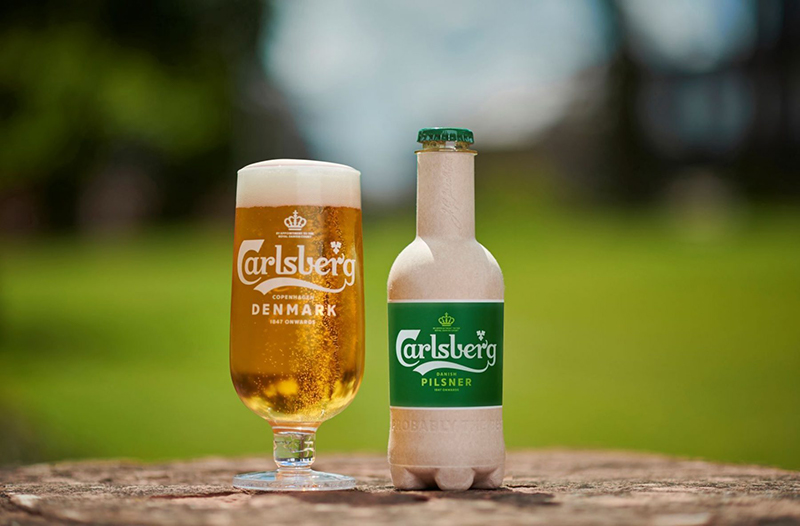Volcanoes are erupting in The Philippines, but on-fire Australia received some welcome rain. The Iran war cries have been called off and The Donald’s military powers are about to be hamstrung by the Senate. Meanwhile, his impeachment trial is starting, and we’re all on Twitter for a front-row seat.
What Could Go Right? It’s hot, but it’s not a heat apocalypse
Humans can bear heat better than we thought.
This is our weekly newsletter, What Could Go Right? Sign up here to receive it in your inbox every Thursday at 6am ET. You can read past issues here.
Humans can bear heat better than we thought
Parts of Europe are very hot right now. The record-breaking temperatures in countries like England and France can be brutal to bear, especially for those without good cooling. And they can be dangerous. Over 1,000 people, most of them elderly, in Spain and Portugal have died in recent days. Wildfires are looming. Western France, according to the BBC, is facing a “heat apocalypse.”
I’ll come back to this heatwave, but first I want to take a look at another, much longer, hotter, but less deadly one in South Asia that recently ended in June. For “a period of almost 100 days, high temperatures in Delhi were above 100 degrees Fahrenheit on all but 15 of them, with many days breaking 110 degrees,” writes David Wallace-Wells in The New York Times. (You may know Wallace-Wells as the author of The Uninhabitable Earth.) “For large parts of those months, the punishing heat stretched over much of the subcontinent, often blanketing more than a billion people and in certain places crossing 122 degrees.”
And then comes the article’s main question. Why did so few people die? Science on human survivability in extreme heat suggested that the heatwave would kill thousands. But that’s not what happened—less than a hundred deaths were reported across India and Pakistan. Wallace-Wells dives into the reasons why that may be, including data undercounts (not nearly enough to explain the low death toll), dry vs. wet heat, public awareness, acclimatization, and the limits of current science. It’s a very interesting read, and a reminder that expectations are often bedeviled by reality.
I’d like to touch briefly on the fourth reason, acclimatization, which I suspect has a lot more to do with the low death toll than climate writers might think, many of whom are not regularly living with extreme heat. I live in Athens, a city much more accustomed to it, and I see the difference between how my American-raised self handles the heat and how native Greeks do every day. (A date’s question when we met last year on a 102-degree day, outside, around noon: “Do you always sweat this much?” I know—ouch.) I also see how fast my body has started to adapt to a much warmer climate, after less than two years here. I don’t even turn on a fan in my apartment until it’s at least 90 degrees, a mix of acclimatization and living in a building designed for airflow and natural cooling.
It’s not that heat isn’t an issue here. Greece has suffered greatly in recent years from climate change-assisted wildfires that high temperatures and long periods of drought have undoubtedly made worse. (Though there’s more to that story than climate change. This year is the first year the Greek government has spent any money on fire prevention. While 95 percent of fires in Europe are caused by human error, about a third in Greece are set by arsonists, often to get around building permits.) But ask the Greeks about the current heatwave, and they simply find it unremarkable. While temperatures will rise in Greece today, we won’t see any in the next week that we haven’t seen every summer, probably since the time Cecrops was running things.
Heat and fire both can kill, and wreak incredible damage. But as we can see from hot countries like Greece and India, there’s a much wider spectrum of human response available to us than the “climate change = mass death” mindset that is so easy to slip into when you open the news. Even countries like Bangladesh, with relatively scarce resources, have improved their disaster response systems. Certainly the Europeans will, too, now that we’re likely to see heatwaves more frequently in the future. Many cities have already started cooling programs.
To any readers currently suffering through the heat: acclimatization is no instantaneous solution, obviously. Now, though, is a great time to invest in a heat pump, which despite its name cools the home as well. They are electric and cheaper to run than air conditioners. If you’re in England or Wales, the government will even give you enough money to cover almost the whole cost of installing one in your home. And simple behaviors, like drinking plenty of water, opening windows at night, and checking in on your grandma—social isolation does play a role in heat deaths—save lives.
American politics grab bag
The United States now has a new three-digit emergency number. People experiencing a mental health or substance abuse-related crisis can call or text 988 and reach professionals trained to help. Besides the number’s direct benefits to people, we wonder if it will help clear up police time. “Many cities [and] counties have been experimenting with alternative dispatch programs for health calls in particular,” The Progress Network (TPN) Member Jennifer Doleac wrote about this on Twitter. “Evidence so far is limited but promising.”
Maybe it really is okay to put aside fears of same-sex marriage going the way of Roe. The House just passed a bill that would federally protect it. We wouldn’t call 47 Republicans voting yes “significant GOP support,” but it’s significant that The Washington Examiner, a conservative outlet, would want to frame their article about the bill that way. “Just a decade ago,” says a piece in The Hill about Republican turnaround on same-sex marriage, “the 2012 national Republican Party platform asserted support for a constitutional amendment defining marriage as between one man and one woman.” So the Republican party splitting on this vote really is a change. We’ll see what happens in the Senate.
Voters in California, Kansas, Kentucky, Montana, Vermont, and likely Michigan will weigh in on expanding or limiting abortion protections this year. The 19th has the list of legislation.
Before we go
How cool is Switzerland, with their plans for an underground freight system featuring driverless delivery carts powered by renewable energy? The project is expected to reduce the amount of heavy trucks on roads by up to 40 percent. Building begins August 1.

There has been a dramatic uptake in bank account ownership over the last decade. In 2021, a new report from the Global Findex Database, a project from the World Bank, says, “76 percent of adults worldwide had an account at a financial institution or through a mobile money provider, up from 51 percent in 2011.” This is the kind of news that sounds boring but represents a substantial improvement in people’s lives, in everything from everyday convenience—shopping online!—to building savings and credit that could cover an emergency expense or jump-start a business. The gender gap in account ownership also narrowed for the first time in the last decade.
The world population has passed eight billion people, and despite predictions, we’re all still chugging along.
We loved this confession from High Conflict author Amanda Ripley that she had to stop reading the news, plus her suggestions on how to make it better, featuring TPN Member David Bornstein. Her follow-up on her Substack is great, too. Everybody hating the news is one reason why we started this little outfit.
Below in the links section, scientists confirm the first live sighting of an elusive whale in the Pacific, psychedelic therapy for veterans inches ahead in the US, and more.

How Progress Compounds and Why It Matters

Thinking about the future does not require endless hyperbole or even forecasting. There are patterns, from a long-term perspective. | Read more
Progress, Please
(Found good news? Tweet at us @progressntwrk or email.)
Other good stuff in the news 🍄
Environment:
- Climate opportunity map: All of America will benefit from investment in clean energy and climate solutions | Watson Institute
- Bison are climate change heroes after nearly going extinct | The Washington Post
- Video: Giant tortoises successfully moved to Galapagos island | Reuters
- The global energy crisis is hastening the end of the fossil fuel era, India says | Bloomberg
- Scientists get $1 million prize to fight climate change with ‘photosynthesis 2.0’ | The Wall Street Journal
- Fungi species new to science discovered in Scottish Highlands | EcoWatch
- Scientists had never seen this elusive whale alive—until now | Hakai Magazine
- In Alaska, coal is dwindling as green energy is on the rise | High Country News
- Massachusetts releases clean energy roadmap to cut GHG emissions 50% by 2030 | Utility Dive
Science & Tech:
- Can we hack DNA in plants to help fight climate change? | National Geographic
- Solar power is bailing Texas out this summer | Texas Monthly
- Zephyr breaks own record for longest unmanned flight | BBC
- New AI tools let you chat with your dead relatives | Axios
- CRISPR for the masses gets a little closer to reality | The Washington Post
- Video: The snake-like robot for hard-to-reach rescues | Reuters
Politics & Policy:
- US House moves to expand psychedelic therapy research | The Intercept
- Ignore the chaos. Britain’s system is working | The Atlantic
- Pharmacies can’t deny medication that terminates pregnancy, HHS warns | Axios
- Is Africa becoming more liberal on abortion? | DW
- How Germany’s new immigration law gives refugees hope | DW
- Broadband billions are finally making their way to rural communities | The Verge
- Beavers to be legally protected from harm in England from October | New Scientist
- Rwanda made the sale of skin whitening products a crime. It’s working, but underground market persists | CNN
Covid & Public Health:
- The radical plan for vaccine equity | Nature
- UnitedHealth to offer some drugs, including insulin, at no cost share in 2023 | Healthcare Dive
- Next-generation vaccines could end boosters | The Economist
- The hunt for drugs for mild COVID: scientists seek to treat those at lower risk | Nature
Society & Culture:
- Russia’s invasion is making Ukraine more democratic | The Atlantic
- Meet the Gen-Zers who embrace climate optimism | The Guardian
- Fifty-eight countries have liberalized their abortion laws since 1994 | Center for Reproductive Rights
- New research says most of us underestimate the power of the casual check-in | The New York Times
- Getty opens access to 30,000 images of black diaspora in UK and US | The Guardian
- Regular cannabis use now more accepted by Australians than smoking tobacco, study finds | The Guardian
- How one Paris district rediscovered conviviality | The Guardian
Economy:
- The everything-is-weird economy | The Atlantic
- A big inflation factor, gas prices are coming down sharply | The New York Times
- Panasonic to build massive EV battery factory in Kansas | The Hill
TPN Member originals 🧠
(Who are our Members? Get to know them.)
- Where on Earth will people live in the future? | Parag Khanna
- Relocation nation: Why people are moving so much and what it means for America | Bruce Feiler
- Back to the 20th century? No matter how the Ukraine war ends, it won’t restore American global primacy | Andrew J. Bacevich
- The world is getting better. That doesn’t mean it’s good enough | Charles Kenny
- A 2024 presidential candidate who meets the moment | David Brooks
- Trump is toast | Diane Francis
- Forget pronouns. Democrats need to become the party of building things | Fareed Zakaria
- My top 10 issues to run on and why | Matthew Yglesias
- Democrats need a real primary contest | Yascha Mounk
- How to be an effective activist | Eboo Patel
- Faith, music, and civility in a time of great political polarization | John Wood Jr.
- A conversation about the philosophy of progress | Jason Crawford & James Pethokoukis
- The psychology of Zoom fatigue | Arthur C. Brooks
- Is the world falling apart, or does it just feel that way? | Steven Pinker
- Where the cost of living crisis came from, and where it’s heading | Gillian Tett & Diane Coyle
- Blissful thinking: When it comes to finding happiness, ‘your dreams are liars’ | Arthur C. Brooks
- Matthew Ball on the metaverse and gaming | Tyler Cowen
Department of Ideas 💡
(A staff recommendation guaranteed to give your brain some food for thought.)
Can things ever change? | Wisdom of Crowds
In America’s approach to the Middle East, it can feel like the answer is always no. But we can’t let that breed complacency.
Why we picked it: Changes for the better (in any realm) are not guaranteed or irreversible. But we all have the only tool for bringing them about: individual agency. Use it or lose it. —Brian Leli
Until Next Time
We’re gonna need a bigger boat.👇


